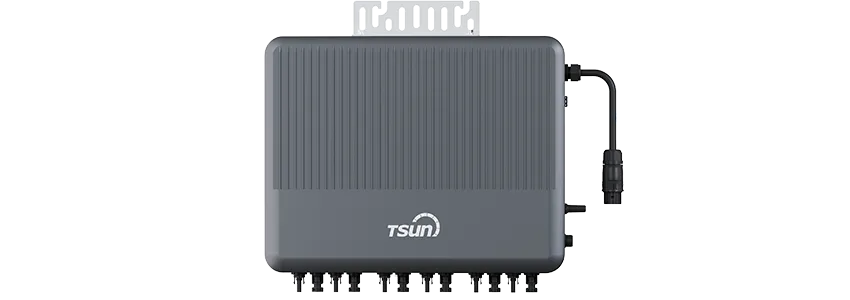Harnessing the potential of solar energy has become a mainstream pursuit as the world shifts towards sustainable and renewable energy sources. Every solar power system aims for maximum efficiency and reliability, and this is where microinverters come into play. Microinverters have revolutionized the solar industry by offering a host of benefits that enhance the performance and reliability of solar energy systems. Their innovative design and functionality provide substantial advantages over traditional string inverters.

The primary reason to use microinverters is their ability to optimize the energy output of each solar panel individually. Unlike traditional string inverters, which can be limited by the performance of the least efficient panel (a phenomenon often referred to as the Christmas light effect), microinverters operate independently. This means that shading, dirt, or panel mismatch issues on one panel will not affect the output of the others. By optimizing each panel’s output separately, microinverters maximize the energy harvest, especially in conditions where shading or orientation issues might otherwise limit production.
From an expertise standpoint, it’s clear that microinverters enhance monitoring and maintenance capabilities significantly. Most microinverters come equipped with advanced monitoring systems that allow users to track the performance of each panel in real-time. This granular level of monitoring facilitates accurate diagnostics and swift issue resolution, reducing downtime and maintenance costs. Technicians can pinpoint the exact location and nature of any potential problems without the need for extensive on-site inspections, which increases both the efficiency and the reliability of the solar energy system.

Given their design and functionality, microinverters also offer a heightened level of system reliability and lifespan. Each microinverter handles a small portion of the overall load, which generally translates into less stress on individual units. This distributed nature of load handling can lead to increased system durability and longer operational life. Additionally, microinverters typically come with robust warranties - often stretching 20 to 25 years, matching the expected life of solar panels more closely than their string inverter counterparts. This reliability addresses both performance security and financial aspects, assuring users that their investment will remain productive over a longer duration.
why use micro inverters
Authoritativeness in the industry is well established by the plethora of studies and user experiences that clearly demonstrate the benefits of microinverters. For instance, data show that systems utilizing microinverters often exhibit higher energy yields compared to those using string inverters, particularly in installations with complex roof layouts or variable shading. Moreover, leading solar companies have widely adopted microinverter technology into their product lines, underscoring the efficacy and advantages it brings to residential and commercial solar installations.
Addressing trustworthiness,
microinverters also enhance the safety profile of solar installations. Unlike string inverters that operate with high-voltage DC electricity, microinverters convert DC to AC electricity at the panel level, minimizing the presence of high-voltage DC on rooftops and increasing the overall safety of solar power systems. This reduction in risk makes microinverters particularly suitable for residential areas or in regions with strict safety regulations.
For homeowners considering solar installation, the ease of system scalability with microinverters cannot be understated. Because each panel operates independently, adding more panels to a system equipped with microinverters is straightforward and seamless. This flexibility is invaluable for users who plan to expand their solar array in response to growing energy needs or budget increments.
In conclusion, the decision to use microinverters is primed by their ability to maximize efficiency, enhance monitoring capabilities, increase reliability, improve safety, and offer scalability. As the solar industry continues to grow and evolve, microinverters stand out as an essential component in optimizing residential and commercial solar power installations, promising users enhanced performance and greater returns on their solar investments. Whether motivated by environmental responsibility or economic considerations, choosing microinverters ensures that individuals and businesses alike can harness solar energy with confidence and efficiency.
 LEARN DETAILS
LEARN DETAILS
 News
News



